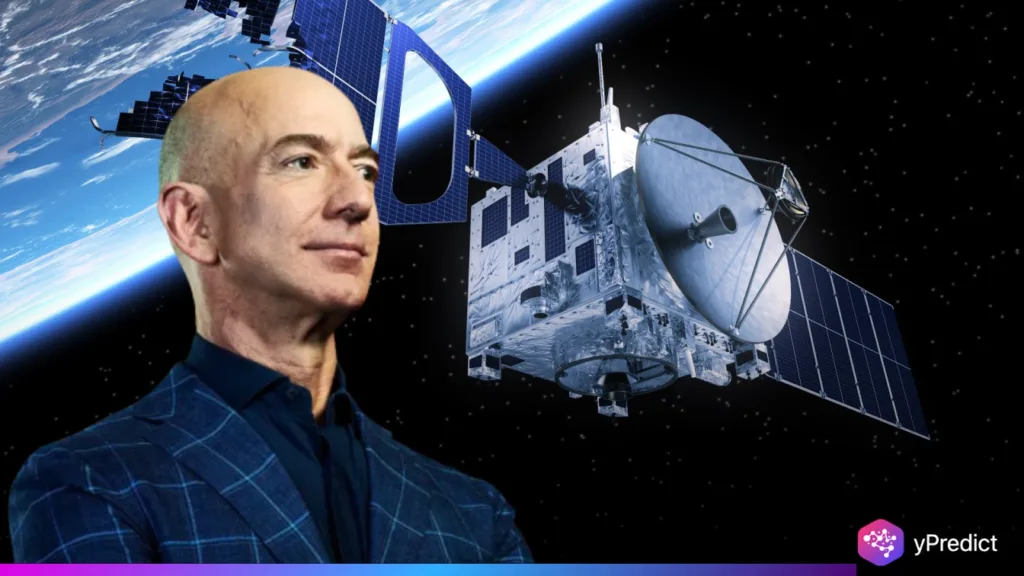
Jeff Bezos launches AI-energy-space combo in Turin’s Italian Tech Week. He joked about constructing gigawatt-scale orbital data centers in 10-20 years. These orbiting outposts would amass steady solar power—day or night. It cuts right to the escalating pressure Earth-bound hubs place on grids and water. Bezos argues that by moving data infrastructure off-world, he can reduce expenses and emissions. His idea has sparked debate. A giant jump to sustainable AI computing, or a pie-in-the-sky dream sunk by physics and economics.
Technical Barriers and Energy Potential
Jeff Bezos touts orbital data centers as a solution to Earth’s worsening energy crunch. Our earthbound data centers are already slurping mind-boggling power and water to cool. In orbit, sunlight never ends. That’s the advantage.
But the hurdles are immense. Cooling in space is tricky. Without air, convection doesn’t work. Heat must radiate away slowly. There’d be radiative cooling, but not nearly as much as we have on Earth. NASA research shows solar arrays in space can be 20—50% more efficient, but the scale is overwhelming. We would have to ship thousands of tons of radiators and solar panels, and hardware.
Launch costs remain another wall. Even with reusable rockets, launching 9,000–11,000 MT to low Earth orbit might be $14–17 billion. And that’s before accounting for maintenance and replacements. Latency is another headache. A millisecond or two, misspent on earth and in orbit, may not register for batch processing. But AI inference, gaming, or financial trading requires real-time speed.
Supporters claim orbital data centers can cover their costs by replacing water-hungry Earth-based alternatives. Skeptics answer that scaling is decades off. The debate reverberates with a conflict between idealism and pragmatism. Bezos is gambling that innovation will bridge that gap.
Business Moves and Strategic Competition
The news arrives in the midst of massive wealth fluctuations for Jeff Bezos. Since 2024, he’s sold more than $18 billion in Amazon stock. That move raised eyebrows. Or a near-term trouble sign for Amazon. Or powering his next big leap.
Meanwhile, Blue Origin, his space venture, is seeking to catch SpaceX, which dominates the launch market with Starlink and reusable rockets. Bezos is laying down a highway, orbital infrastructure. Orbital data centers fuel that strategy. No, they want to move the polluting and resource-gobbling off of Earth.
That’s geopolitical play, too. Whoever wins orbital computing might win the whole techy-businessy universe. Think of countries or corporations running AI tasks through orbital servers. It wouldn’t be just the cloud that would get walloped.
But high barriers might impede the pioneers. The usual suspects would be nation-states, spy agencies, and mega-corporations with AI schemes. Bezos casts Blue Origin as the creator of this future. If it pans out, the startup could very well reinvent cloud infrastructure. Otherwise, it risks looking like a billionaire’s science project. Regardless, the timing signals Bezos’s eagerness to keep pace with Musk in the space-tech race.
Conclusion
Jeff Bezos has staked out a visionary, audacious gamble with orbital data centers. The upside is obvious: dependable solar power, zero terrestrial load on Earth’s grids, and space for AI expansion. No less apparent are the perils — cooling, latency, and prohibitive expenses. His timing, along with stock sales and Blue Origin’s ambitions, hints that space is the new frontier. Realistic or wishful, the concept propels the dialogue of how humans are going to sate AI’s hunger for control. Bezos’s earthbound desire for the cloud. Now we just need to see if the technology–and economics–will allow it.





